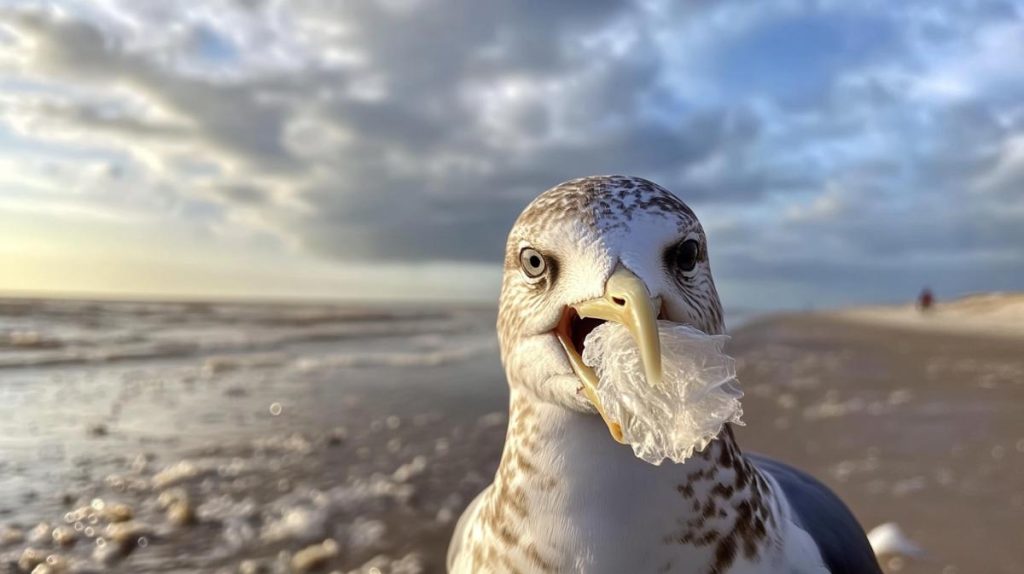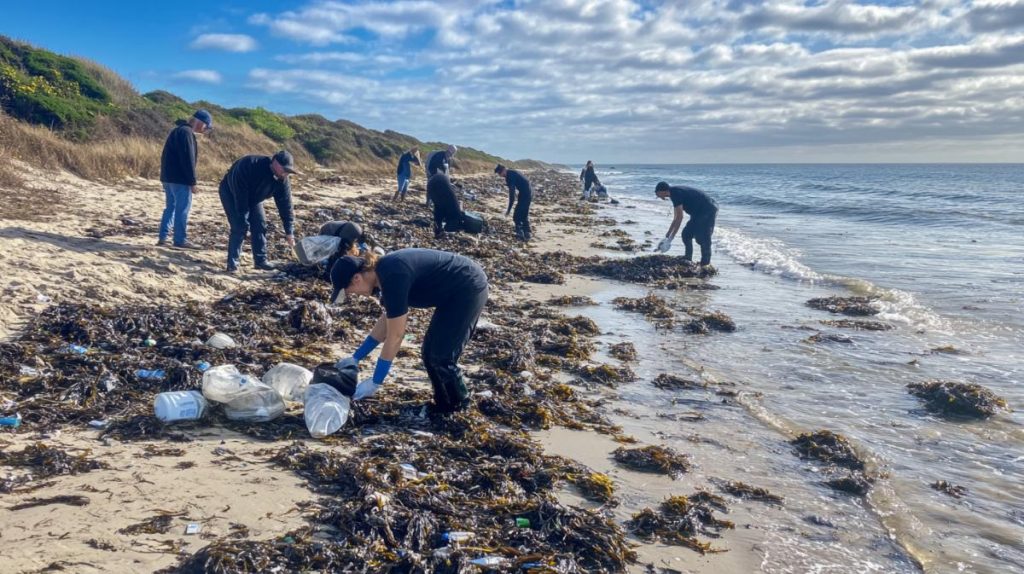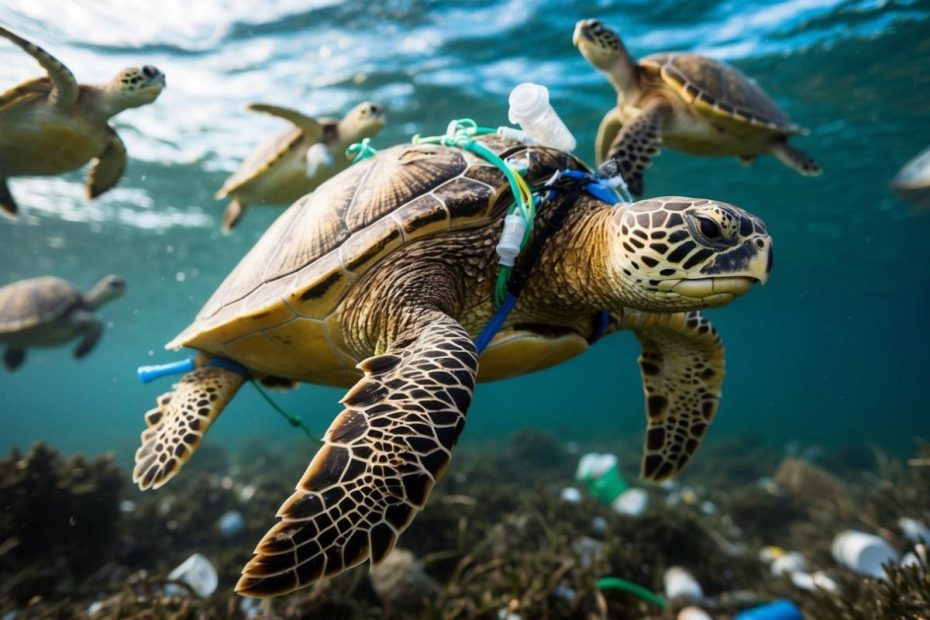Did you know that your plastic waste could be pushing countless marine species to the edge of extinction? It’s a scary thought, but it’s the reality we’re facing today.
Almost every marine species has encountered plastic pollution, with negative effects in nearly 90% of assessed species.
From tiny plankton to massive whales, no creature is safe from the plastic menace. Your discarded water bottle or grocery bag might end up as a deadly snack for a sea turtle or a suffocating trap for a curious seal.
The problem is getting worse. Scientists predict that microplastics in the sea could grow 50 times by 2100. That’s a lot of plastic soup!
But don’t worry – there’s still hope! By making small changes in your daily life, you can help turn the tide on plastic pollution and give marine life a fighting chance.
Key Takeaways
- Plastic pollution affects almost all marine species, threatening their survival
- Microplastics in the ocean are expected to increase dramatically by 2100
- Your everyday choices can make a difference in combating plastic pollution and protecting marine biodiversity
The Perils of Plastic Pollution on Marine Biodiversity
Plastic pollution is wreaking havoc on our oceans. You might be shocked to learn how it’s pushing marine life to the brink. Let’s dive into the murky waters of this growing crisis.
Impact on Marine Species and Ecosystems
Plastic pollution is everywhere in our oceans, from the surface to the deepest trenches. It’s like a bad houseguest that just won’t leave!
Coral reefs are getting a raw deal. These underwater cities are losing their ability to thrive due to plastic debris. Imagine trying to build a sandcastle while someone keeps dumping trash on it!
Mangroves aren’t faring much better. These coastal superheroes are choking on plastic waste. It’s like trying to breathe through a plastic bag – not fun for anyone.
Marine life is feeling the squeeze too. Fish, turtles, and seabirds are all getting tangled up in this mess. It’s like a game of marine Twister, but with much higher stakes.
Ingestion and Entanglement: A Deadly Duet

You know how you sometimes accidentally swallow a bug? Well, marine animals are accidentally swallowing plastic, and it’s not ending well.
Sea turtles often mistake plastic bags for tasty jellyfish. It’s like reaching for a delicious sandwich and biting into a rubber glove instead. Yuck!
Seabirds, especially albatrosses, are filling their bellies with plastic bits. They’re like the ocean’s unfortunate garbage disposals.
Entanglement is another big problem. Imagine getting tangled in your blankets, but instead of blankets, it’s fishing nets and six-pack rings. Not a fun way to start your day!
The Threat to Apex Predators and Keystone Species
Even the ocean’s top dogs aren’t safe from plastic pollution. Sharks, whales, and other marine predators are feeling the heat.
Microplastics are working their way up the food chain. It’s like a game of toxic hot potato, with apex predators getting the worst of it.
Keystone species, the VIPs of marine ecosystems, are in trouble too. When they’re affected, it’s like removing the bottom block in a Jenga tower. The whole ecosystem could come tumbling down!
Conservation Challenges and Global Initiatives

Tackling plastic pollution requires a mix of strategies and teamwork. You’ll be amazed at the efforts underway to save our planet’s species from this growing threat.
Strategies to Tackle Plastic Waste Generation
You might wonder how we can stop plastic from harming wildlife. Well, it starts with you! Reducing your own plastic use is key.
Companies are getting creative too. They’re making products from recycled plastics and coming up with cool alternatives. Imagine drinking from a cup made of seaweed!
Governments are stepping up. Some are banning single-use plastics. Others are making companies responsible for their plastic waste.
But here’s a tricky part: plastic production is still growing. We need to tackle this at the source.
International Cooperation and Policy: Towards a Global Treaty
You know how they say “teamwork makes the dream work”? That’s true for fighting plastic pollution too!
Countries are joining forces. The big goal? A global treaty on plastic pollution. It’s like a worldwide pinky promise to protect our oceans.
This treaty could set rules for:
- Making less plastic
- Designing products that are easier to recycle
- Cleaning up plastic already in the environment
The Role of Research and Non-Governmental Organizations
You might think scientists are just guys in lab coats, but they’re ocean heroes too! Their research helps us understand the problem better.
For example, the Alfred Wegener Institute found that plastic pollution in the sea could grow 50 times by 2100. Yikes!
NGOs like WWF are also fighting the good fight. They’re pushing for stronger laws. They’re also educating people about plastic pollution and testing solutions in the real world.
These organizations are like plastic pollution detectives, finding clues to solve this tricky case.
